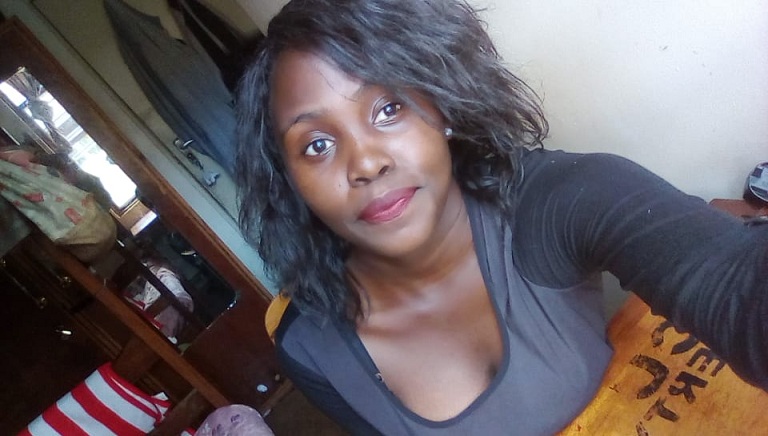I never invited depression in my life. It slid into my life due to some challenges that I seemed to ignore and yet I was hurting emotionally and mentally. The more I ignored the challenges – such as my male peers looking down upon me because I am girl – the more my condition worsened. Many people like me never come out of depression.
But I did and this is my story.
In 2013, I had a mental breakdown that shocked everyone including myself.
With little knowledge about what was happening to me, fellow students in Senior Three started distancing themselves from me lest I infected them too.
It got a point where the corridor that leads to my bed was constantly abandoned by my so called friends.
I remember I always wanted to be in isolated places, alone, because loneliness had now become my ‘new best friend’ – it never ran away from me or even judged me for what was happening to my life at that time.
Today, because of the stigma I suffered then, I got affected that at times I appear to be antisocial in public, unintentionally.
You see, since no one knew exactly what was happening to me, my parents were called to pick me up after about a week to go for checkup. This was during the second term of my Senior Three.
The condition worsened each and every day and I was always irritated, lacked appetite and became skinny.
At home we were stranded because we did not have an immediate solution. I was always in and out of hospital, and this stressed all my family members. This meant my mother would always travel with me wherever she went because she understood me better.
Meanwhile, I only returned to school for two or three weeks and to sit end of term exams.
A concerned family friend connected us to Professor Musisi of Nakasero Hospital in the psychiatric ward. He had a one on one session with me and my mother and later told us his not so positive findings but at least we now knew what we were dealing with.
Prof. Musisi advised my mother to admit me in order to get help but because of the expenses, she opted to take care of me from home because then she would not only be able to save money to buy the required medication but also monitor her from home.
I also started seeing counselors but it was hard for me to open up in fear of being judged and so most sessions would end without me saying anything until I felt I had gained enough trust to open up.
I realized the importance in talking to someone about the challenges in life because it made me feel light and relieved unlike when I would keep quiet and feel heavy burdened.
I was on medication as well as counselling which helped me out get better after a two-year battle.
Now a finalist student at Uganda Christian University (UCU) pursuing a Bachelor’s degree of Arts in Mass Communication, I am also a self advocate at Triumph Uganda Mental Health and Recovery Support and also a member of My Story Initiative.
A counselor’s take
Alambuya Robinnah, the C.E.O and founder of Triumph Uganda, a mental health support and recovery organization based in Walukuba-Jinja has also experienced psycho-social disability due to the challenges she faced when growing up in a rural area.
“I was raised in a rural African family, born of a mother who lived with an epilepsy condition and a grandmother who was totally blind. I experienced emotional and mental distress at an early age and like other people, I was at the risk to taking my life,” she said.
“What has helped me to fight depression is interacting with the people that are suffering from depression as well and sharing my story with them to give them hope that they too can overcome it,” Alambuya, who was admitted to Butabiika Hospital where she was treated until she recovered, said.
As a disability advocate and mental health activist, she has had an opportunity to travel to different parts of the world talking about mental health and educating the public.
What is depression?
According to World Health Organization (WHO), depression is a mood disorder that involves a persistent feeling of sadness and loss of interest in the day to day activities especially those that one always had interest in.
The signs and symptoms include sleeping too much or too little, fatigue or loss of energy, change in appetite, depressed mood, reduced interest or pleasure in activities once enjoyed, difficulty in thinking, concentrating, or making decisions, slowed movement and speech among others.
Depression can be caused by history of depression in the family, the brains physical structure, history of other disorders, stressful or traumatic experiences (death of a loved one, abuse), hormone changes (menstrual cycle, pregnancy) and also certain medications (sleeping aids, blood pressure medication).
Types of depression.
Major depression.
This is the most common type of depression that many people experience. They do have recurrent episodes of depression throughout their life.
Dysthymia.
This is a persistent low mood over a long period of time and it can even take a year or more.
Atypical depression.
People with this type of depression report heaviness in their limbs suffering from irritability and relationship problems being prone to overeating and oversleeping.
Bipolar disorder.
This kind of depression is also known as manic depression whichinvolves alternating of episodes. The person is happy for sometime and then gets sad and becomes very rude.
These are but a few of the types of depression that people do go through most times and unknowingly.
Treatment for depression.
Exercise. Exercise is very helpful for a depressed mind. It helps one to handle stress better and the endorphins (chemicals produced naturally to cope with pain and stress) are released which enables mental boost helping you sleep better at night.
Keep a journal. It is important to write down how you feel about something whether it made you happy or sad. When you write, you express how you are feeling easily than keeping it within which will makes you depressed in the long run. Keeping a journal is also an important way to vent.
Talk to a professional counselor. It is very important to talk to someone that you are comfortable with and trust that they will keep the conversation confidential. When depressed, it is important to talk someone who will just listen and not judge you. The reason some people don’t open up because of fear of being judged. Talking about something that is bothering you makes you feel light after the talk.
Take medication. When you feel depressed and need help, seek advise from a medical practitioner in order to take the required medication because self-medicating is dangerous to one’s health. Visit a health facility and get the required medication to make you feel better.
Do something creative. What makes one stressed is thinking about that problem more often, freezing your day to day activities and in the long run makes you depressed. It is important to do something creative that is not work related. You could do crafts work, watch a comedy movie to laugh and loosen up, listen to music to calm you down.
Esther Deborah Suubi is a finalist student at Uganda Christian University (UCU) pursuing a Bachelor’s degree of Arts in Mass Communication
Do you have a story in your community or an opinion to share with us: Email us at editorial@watchdoguganda.com












